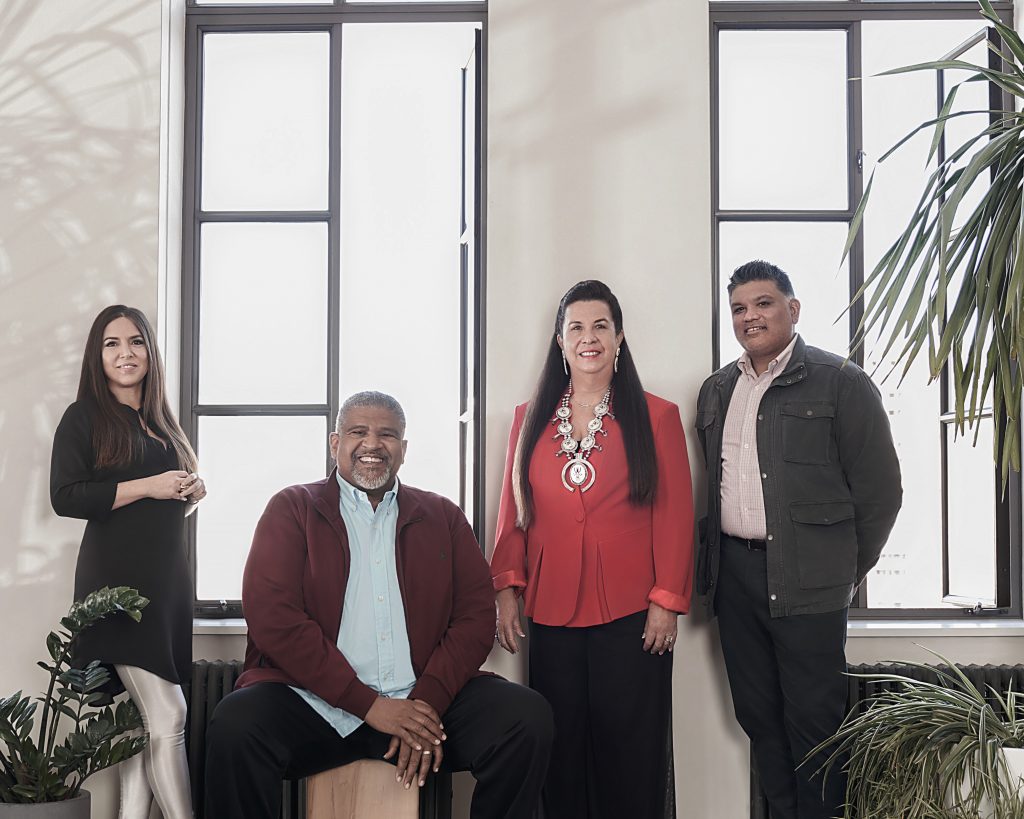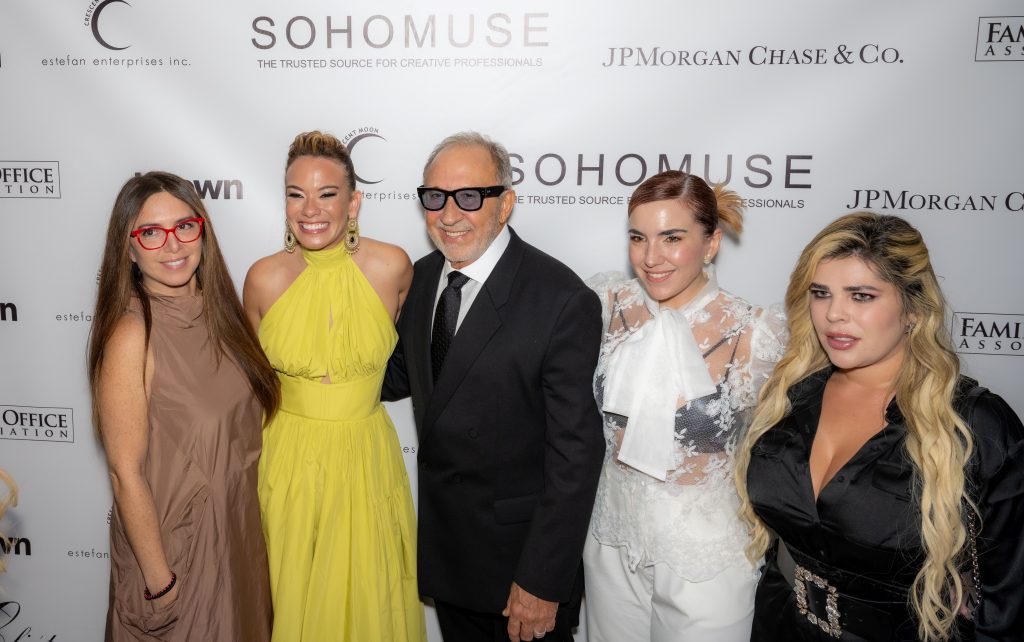By Pollyana Ramos Tucker

In a candid interview with Known’s co-founder, Nathalie Molina Niño, we gain insight into the driving force behind her and her company’s mission: to bring wealth and ownership for the Global Majority in line with their demographic representation. As the co-founder passionately stated during our interview:
“The single data point that keeps me going when I wake up every morning is that no matter how many people of color are at the helm of Fortune 500 companies… the entire world’s capital and assets, not just in the US, less than 2% of it is managed or controlled by people of color.”
The interview continues with Molina Niño underscoring the unmatched security that comes with company ownership, a defining factor in Known’s strategic approach. As she aptly describes it, “You can put people on the covers of magazines, you can put them on boards… but all of those positions are fireable. The one position that you can’t be fired from is the owner.” She continues, “What ultimately drives that is access to capital. And that’s really the connection for us. How do you get more people to actually own the company, to own the bank, to own the fashion house, to own the magazine, to own the movie studio. The way to do that for communities of color is to give greater access to capital. And that’s really the reason we (Known) exist.”
Known doesn’t just manage capital; they invest it with intentionality. The co-founder underscores the significance of channeling resources into communities of color. “I think that’s effectively how we move the dial. We take some of the world’s largest fountains of capital and we make sure that when we are in charge of that money, we’re deploying it in a way that reflects what the world actually looks like. If the world is 70% people of color, then how about 70% of your investments go into communities of color?”
Roots in Entrepreneurship
In a more personal reflection during the conversation, the co-founder shared stories about her grandmothers, who, upon immigrating to California, embraced entrepreneurship as a means to take charge of their lives. Her Ecuadorian grandmother balanced a day job as a seamstress in Los Angeles sweatshops with crafting quinceañera and wedding dresses for the local community on the side. Her Colombian grandmother dabbled in selling vitamins, jewelry, and other items from her car. These endeavors, at their core, embodied the spirit of entrepreneurship.
“I have them to thank. I don’t think that I would be where I [am] if it wasn’t for them understanding really early on that you had to be entrepreneurial in order to move your family forward. And that to be entrepreneurial was essentially to own; to own your own business, to own your own destiny.”
Latin Ignition Show at NYFW

Known’s sponsorship of the Latin Ignition Show at this year’s New York Fashion Week is a testament to their commitment to representation and opportunity. During the interview, Molina Niño recounted a conversation with Consuelo Vanderbilt, entrepreneur and one of the driving forces behind the Latin Ignition show, highlighting the challenges faced by Latinx designers in the fashion industry. Nathalie explains, “Unless you are an established longtime brand… it’s very challenging to get traction at New York Fashion Week if you’re a Latinx designer.” Vanderbilt’s proposal to take over the historic Guggenheim Museum for the fashion show resonated deeply with Known’s ethos, which emphasizes making a significant, mainstream presence:
“We don’t want second fiddle, we don’t wanna be in a room on the side somewhere. If we’re going to show up, we’re gonna show up big.”
Molina Niño also stressed the importance of Latinx representation and influence, emphasizing that there should be a seat at the main table for the 60 million-plus Latinx people in the United States.
“It’s not enough to simply get a seat at the table. I love the idea of building our own table and having it be large and spectacular… We’re here, there’s a lot of us, and we’re present in every industry.”
Long-term Vision
Known’s long-term goal is nothing short of groundbreaking. “We want to eliminate the wealth gap.” She goes on to explain, “We think that a company like ours has the ability to do that…If we continue with our commitment to make sure that money is flowing into communities of color, there is no reason why we can’t make a huge dent, if not totally eliminate the racial wealth gap that exists in this country and outside of this country.”
The strategy hinges on leveraging their access to an extensive database of BIPOC-led fund managers.
“The biggest tool that we have at our disposal, which we can’t even pick credit for creating, is that we have access to the largest database of black, indigenous, people of color led fund managers in the world. That is often the thing that people blame, ‘we would love to put investments into communities of color, but we are just not aware of, and we’re not seeing as many opportunities.’ That’s not a thing. We can tell you places where investments can go into across any category, whether it’s real estate, whether it’s public equities or private equity. It doesn’t matter the category. We have a Black CEO, a Cherokee president, myself, I’m Latina, my other business partner, South Asian. Between the four of us and our team, we can tell you exactly where capital can go and they’re great investments that we’ve studied and that we’ve vetted. And so this question of ‘oh, you know, we would love to invest in communities of color, if only there was more vehicles to do it in’, that’s no longer a problem.”
“We have solved that problem. We can definitely invest in communities of color across any category and if anybody was to say, well, you know, is the well gonna run out? No. Again, I go back to this idea we’re 70% of the world. There is never gonna be a lack of opportunities to invest in us.”
The Significance of the Latinx Market
In closing, the co-founder stresses the integral role played by the Latinx community in shaping the United States. When asked about her perspective on the cultural significance of the Latin American market in the United States, “It’s hard to say what’s the cultural significance of something that is such an integral part of how this country was founded and how it functions every day. It’s almost like what’s the significance of the arteries in your heart. You can’t function without them.”
“I would actually say that this country by design is, whether it wants to admit it or not, is inextricably connected to our communities and our communities are inextricably connected to it… You can’t have a United States without 60 million people who keep it running every single day and who have influenced every part of the culture.”
As our conversation drew to a close, the co-founder closed with these poignant words, capturing the essence of her perspective:
” I’ve heard people call the community the sleeping giant. We’re not sleeping anymore. I don’t know that we ever were.”
